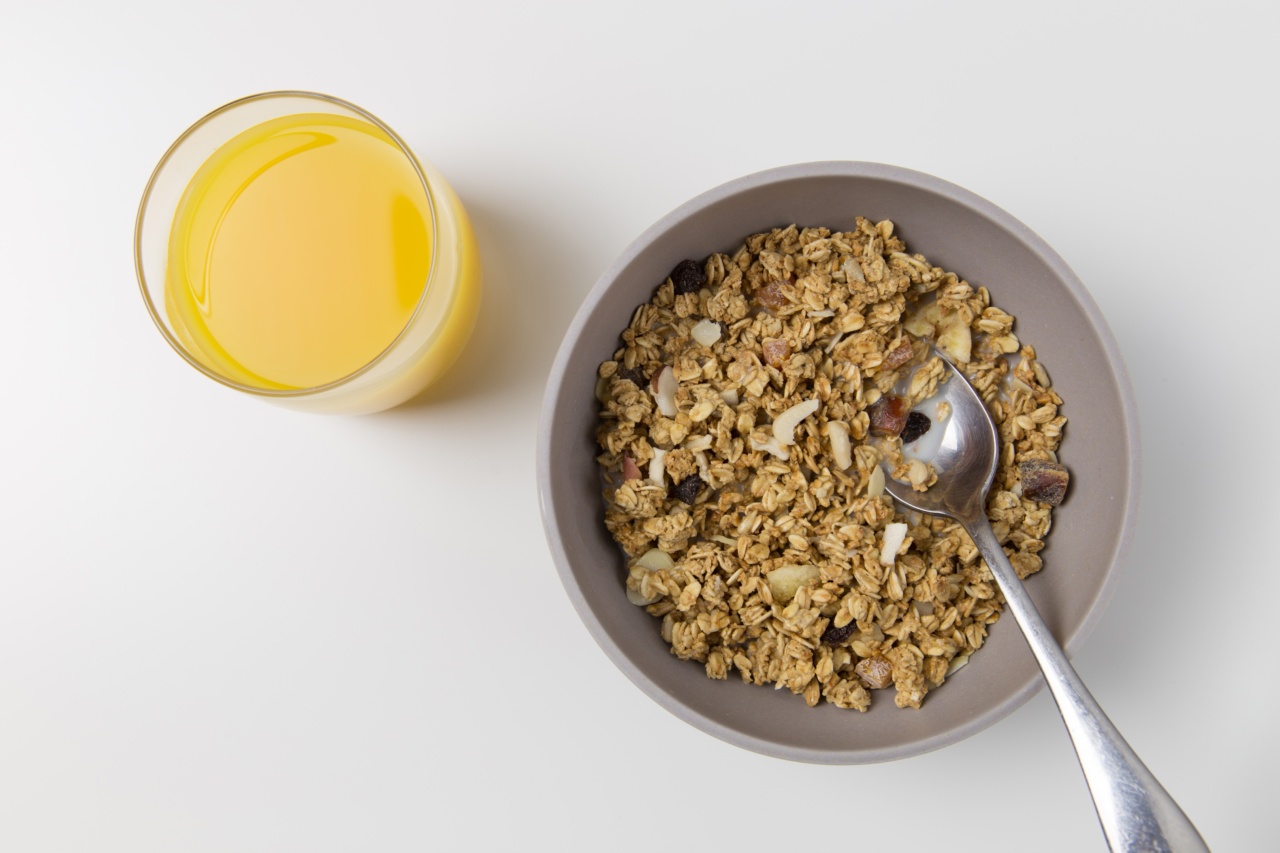The year 2019 witnessed the rising popularity of oat milk as a preferred alternative to cow’s milk, soy milk, and other dairy alternatives.
This dairy-free milk alternative is made from oat grains that are soaked in water, blended, and strained to deliver a creamy, mild-tasting, and nutritious milk. Oat milk has become a viral wellness trend that has spread across social media platforms, coffeehouses, supermarkets, and households worldwide.
The reasons behind this craze lie in the numerous potential health benefits of oat milk and its eco-friendly and ethical production process. This article provides an in-depth analysis of why oat milk is the latest fad in health consciousness.
Health Benefits of Oat Milk
Oats are a nutritious grain that is rich in fiber, vitamins, minerals, and antioxidants. Oat milk extracted from these grains is equally healthy and beneficial for human health. Here are some of the health benefits of oat milk:.
1. High in Nutrients
Oat milk is naturally high in essential nutrients such as vitamins A, D, and B12, calcium, potassium, zinc, and riboflavin.
These nutrients are vital for optimal body functioning and are often lacking in traditional cow’s milk, making oat milk an excellent alternative for people with nutrient deficiencies or allergies.
2. Low in Calories and Fat
Oat milk is a low-calorie beverage that is dairy-free, soy-free, and gluten-free, making it an excellent fit for weight watchers, vegans, and individuals looking for low-fat alternatives.
A 240 ml (One cup) serving of unsweetened oat milk contains approximately 100 calories and two grams of fat, while whole milk contains 150 calories and eight grams of fat.
3. Rich in Fiber
Oat milk is rich in soluble fiber, which is essential for regulating digestion, reducing cholesterol levels, and promoting satiety.
Soluble fiber absorbs water and swells in the stomach, making you feel fuller and reducing the urge to snack or overeat, leading to better weight management.
4. Boosts Immunity and Reduces Inflammation
Studies show that beta-glucans found in oat milk play a vital role in strengthening the immune system and reducing inflammation in the body. These compounds stimulate the release of cytokines, which protect the body against infections and diseases.
5. May Help Prevent Chronic Diseases
The high fiber and antioxidant content of oat milk is attributed to the prevention and management of chronic diseases like type 2 diabetes, heart disease, and certain cancers.
Antioxidants present in oat milk are potent in neutralizing free radicals that damage cells, causing inflammation and increasing the risk of chronic diseases.
Environmental Sustainability
Aside from being nutritious and healthy, oat milk is environmentally sustainable, making it an ethical and eco-friendly milk alternative choice.
The production process of oat milk requires less water than cow’s milk, and no cows are involved means zero methane emissions and wastewater and waste reduction.
Oat Milk Production Process
Here is how oat milk is made.
- Soak some oats in water overnight or for at least half an hour.
- Drain the oats and rinse them clean.
- Blend the oats with fresh water in a blender until it forms a smooth mixture.
- Strain the oat mixture through a cheesecloth or nut milk bag into a container.
- Store the resulting milk in a jar or bottle for consumption.
Oat Milk vs. Other Dairy Alternatives
Oat milk is not the only dairy alternative available on the market. The most common dairy alternatives include soy milk, almond milk, coconut milk, and rice milk. Here is how oat milk compares to these options.
1. Soy Milk
Soy milk is made from soybeans and is rich in protein and calcium. However, it also has high levels of phytoestrogens, which may disrupt hormone balance in some people. Soy milk has a distinctive taste that may not suit everyone’s palate.
2. Almond Milk
Almond milk is a popular dairy alternative that is low in calories and high in vitamin E. However, it is low in protein and calcium compared to cow’s milk. It may also cause allergic reactions in some individuals.
3. Coconut Milk
Coconut milk is a creamy and flavorful dairy alternative that is ideal for vegan recipes and smoothies. However, it is high in saturated fat and calories and low in protein and calcium, making it an unhealthy choice for daily use.
4. Rice Milk
Rice milk is made from brown rice and has a mild, sweet taste. However, it is low in protein and fat and high in carbohydrates and calories compared to oat milk.
Oat Milk in Coffeehouses
Oat milk has become a barista favorite in coffeehouses worldwide due to its naturally sweet and creamy taste. Oat milk steams and foams like cow’s milk, making it perfect for latte art and espresso-based drinks.
Brands like Oatly, Califia Farms, and Silk have introduced oat milk products specifically designed for coffeehouses and cafes.
Conclusion
Oat milk is more than just a trendy fad in health consciousness; it is a nutritious, delicious, ethical, and eco-friendly alternative to cow’s milk, soy milk, and other dairy alternatives.
It is rich in essential nutrients, low in calories, and fat, and offers numerous health benefits that make it ideal for people with nutrient deficiencies or allergies. Oat milk also promotes environmental sustainability by reducing water usage, waste production, and methane emissions. It is a creamy and flavorful dairy alternative that works well in numerous recipes, including coffee drinks.
Switching to oat milk is a simple and healthy way to add more variety to your diet and contribute to a healthier planet.





























